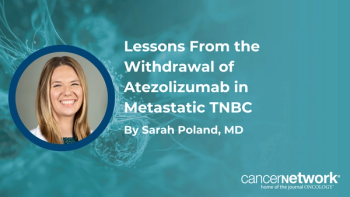
Miami Breast Cancer Conference® Abstracts Supplement
- 41st Annual Miami Breast Cancer Conference® - Abstracts
- Volume 38
- Issue 4
- Pages: 54-55
46 Comparative Analysis of Breast Conserving Therapy vs Mastectomy in Multifocal and Multicentric Breast Cancer: A Review of the Literature
Background
Multifocal (MF) and multicentric (MC) breast cancers are known for their multiple tumor foci, posing distinct challenges in treatment and prognosis. The advent of advanced imaging techniques and treatment strategies calls for a reassessment of therapeutic approaches, specifically breast conserving therapy (BCT) vs mastectomy.
Objective
This study aims to consolidate and analyze recent data comparing the efficacy of BCT and mastectomy in the treatment of patients with MF/MC breast cancer, focusing on disease-free survival, local recurrence rates, and overall patient outcomes.
Methods
A thorough review of literature published from 2009 to October 2023 was conducted. The focus was on retrospective studies comparing outcomes of BCT vs mastectomy in patients with MF/MC breast cancer. A search was conducted using the PubMed database. The search strategy included the terms breast conserving surgery or breast conservation surgery, or breast conservation therapy and mastectomy and breast cancer, or breast neoplasm or multifocality, or multifocal or multicentric or multicentricity. The search included full-text studies published from 1976 to October 2023. A search of bibliographies of relevant publications was also conducted.
Inclusion and Exclusion Criteria
Inclusion:
- Available in English or Spanish
- Includes BCT and mastectomy as surgical interventions.
Exclusion:
- Case reports
- Case series
- Review articles
- Articles reporting on BCS or mastectomy that do not involve MF/MC breast cancer
Results
Local relapse rates: Studies, including those by Oh et al (2006) and Lim et al (2009), showed no significant difference in local relapse rates between BCT and mastectomy. For instance, Lim et al reported local relapse rates of 2% for BCT and 0.9% for mastectomy.
Survival rates: Kadioğlu et al (2014) found a 20% higher overall survival rate in patients undergoing BCS (92%) compared with mastectomy (72%). However, this was attributed to varying tumor characteristics.
Disease-free survival: Yerushalmi et al (2012)observed no statistically significant difference in 10-year disease-free survival between BCT and mastectomy, despite a slightly higher local relapse rate in the mastectomy group (5.8% vs 4.6% for BCT).
Comprehensive analysis: a 2023 study by Yu et al, utilizing the Surveillance, Epidemiology, and End Results database, indicated that specific patient groups might benefit more from mastectomy over BCT, based on factors such as age and tumor stage.
Conclusions
The current evidence supports the effectiveness of BCT, especially when complemented with radiotherapy and systemic therapy, for MF/MC breast cancer. Nevertheless, treatment choice should be tailored according to individual patient characteristics. These findings advocate for a more nuanced approach to MF/MC breast cancer treatment, moving beyond the historical bias toward mastectomy.
Articles in this issue
Newsletter
Stay up to date on recent advances in the multidisciplinary approach to cancer.















































